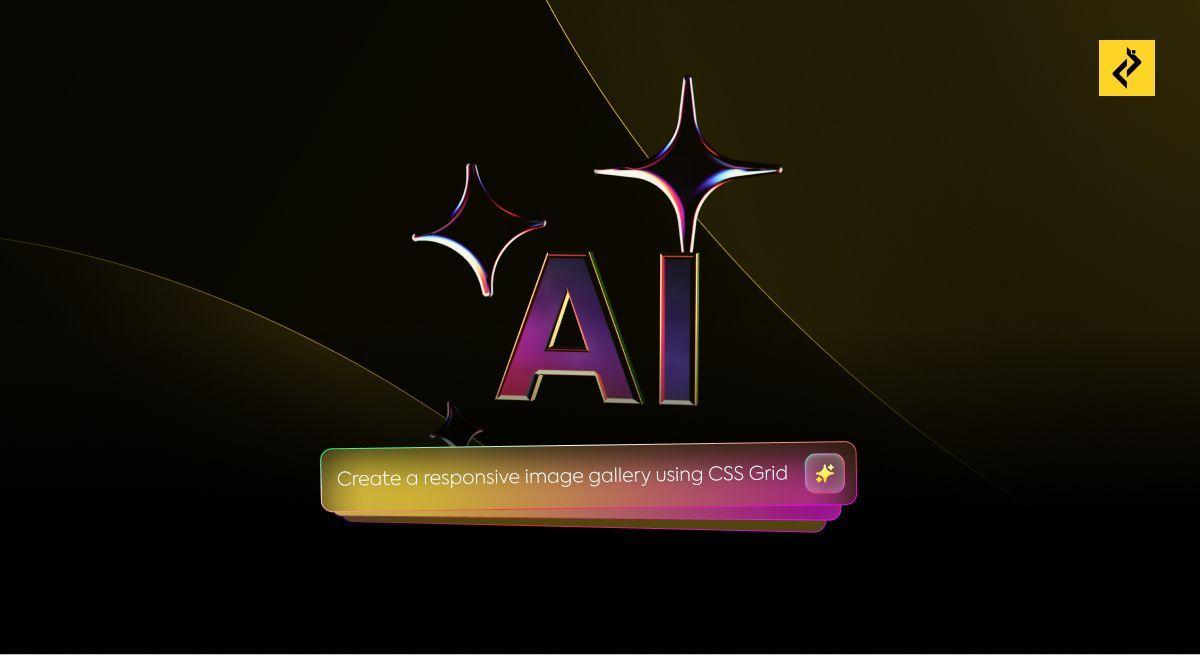Is AI The Future Of Coding?
August 27, 2024
8 Min read

Could AI ultimately replace programmers in their role? This once-speculative subject is becoming a significant topic of discussion in the IT world due to AI's rapid progress. In recent years, artificial intelligence (AI) has been capable of writing whole scripts, debugging programs, and producing code snippets—all jobs that were formerly performed by individual employees. What really matters here is whether programmers will eventually lose their jobs to AI as this technology advances. The current state of AI's skills in software development through coding, its constraints, and the changing role of software developers in India’s AI-enhanced environment must be examined to find an answer.
Artificial Intelligence and Software Development
Computer coding is said to have undergone drastic changes in the last few decades to be what it is today in the technological world. Initially, software and mobile app developers in India used to put down lines of a program and were very careful while coding so that every aspect was checked thoroughly to ensure that maximum benefit was derived from it. Automation became an essential component of software development as technology developed, helping to increase productivity by smoothing repetitive activities. AI, which elevates automation, was made possible by this steady change.
AI-powered resources such as OpenAI, Codex, GitHub, and Copilot are completely changing the coding world. With the use of basic natural language prompts, these tools can produce new code, autocomplete existing code, and even provide enhancement suggestions. The advantages are obvious: AI can perform routine coding chores, improve speed and efficiency, lower human error, and free up humans to work on more intricate parts of software development. Software developers in India may increase the overall quality of their products and save time by delegating repetitive work to AI.
Limitations Of AI In Coding Today
Even with its remarkable abilities, AI has notable limitations. Its limited comprehension of the context is one of the biggest problems. Even while AI is capable of software development through coding and writing code based on patterns it has discovered from large datasets, it frequently finds it difficult to comprehend the complex requirements of a given project or the particular requirements of end users. This might result in code that technically functions but does not adequately represent the intended purpose or user experience.
Furthermore, human programmers possess inventive problem-solving skills that AI does not. Coding demands creative problem-solving and unconventional thinking, particularly when handling challenging issues or developing new features.
It is challenging for AI to develop beyond what it has been educated on since it depends on prior data and patterns. Furthermore, relying too much on code created by AI may result in unsafe or inaccurate code, among other possible hazards. Artificial intelligence (AI) techniques have the potential to create vulnerabilities in software applications and systems that are not immediately evident.
The Human Element In Coding
Even with AI's advances, human ingenuity and imagination are still invaluable when it comes to coding. Developers approach despite all that AI has to offer, one even still needs to code creatively and resourcefully. There are a lot of approaches to thinking and problem-solving, and while AI cannot mimic developers and their way of looking at a problem and finding a unique solution. Problem-solving from a different angle and frequently coming up with creative solutions that AI is unable to imitate. For example, mobile app developers in India may use their experiences, intuitions, and creative thinking to come up with solutions that AI could never conceive of when presented with a complicated problem that calls for a fresh approach.
Additional areas in which humans shine include critical thinking and adaptability. Writing code is only one aspect of software development through coding; other skills include comprehending the larger picture, making judgments based on accurate and changing information, and quickly adjusting to new difficulties. AI, on the other hand, is not as flexible or intuitive as this. Furthermore, human involvement is essential in ensuring that AI-generated code is impartial and compliant with ethical norms. Programmers are in charge of examining and improving AI-generated solutions to make sure they follow moral standards and don't reinforce negative prejudices.
Impact on the Role of Programmers
Programmers' roles will probably change when AI is incorporated more into the coding process. Developers may find that their primary responsibilities now include supervising AI-generated code, troubleshooting, and coming up with original solutions that AI is unable to produce. This shift may bring about a new dynamic in which programmers take on the role of supervisors, directing AI tools to generate more precise and dependable code.
Software and mobile app developers in India will need to learn new abilities in order to succeed in this new setting. It will be more crucial than ever to comprehend AI and machine learning ideas and to learn how to use AI technologies efficiently. Furthermore, ethical issues will be crucial, necessitating developers to exercise caution when it comes to potential biases and fairness problems that may occur with code created by AI.
AI tools are probably going to enhance human programmers rather than take their place, ushering in a collaborative era when humans and AI collaborate to create better software. By fusing the advantages of AI with the imagination and analytical skills of human developers, this symbiotic connection has the potential to produce more creative and inventive coding techniques.
Challenges And Limitations of AI In Coding
When using AI for coding, there are many issues and restrictions to take into account, despite the possible advantages.
-
The intricacy of AI's context comprehension is a primary concern. AI is capable of writing code based on data and patterns, but it frequently lacks the understanding necessary to fully grasp the specifics and scope of a project. This may result in functional solutions, but they might not entirely satisfy end-user expectations or match the project's overall objectives.
-
Security issues present yet another important difficulty. AI-generated code can raise security hazards for systems and apps by introducing vulnerabilities that are not immediately evident.
-
When utilizing AI technologies, developers need to exercise caution to make sure the code they generate is safe and invulnerable to attacks.
-
The use of AI in coding also raises ethical questions. Because AI systems are educated on pre-existing data, which may contain prejudices that might unintentionally be perpetuated, there is a danger of bias in solutions produced by AI.
-
Strict control and dedication in tackling these issues are necessary to guarantee fairness and ethical standards in AI-generated programming.
Preparing For An AI-Enhanced Future In Coding
Software developers in India should concentrate on skill improvement in order to get ready for a future in coding that is boosted by AI. It will be crucial to learn about AI and machine learning principles and to comprehend how to employ AI technologies to increase productivity while being aware of their limits. As for the specific challenges, the developers should also consider extending their domain expertise in areas such as cybersecurity, ethics, and data protection.
However, there are a lot of advantages to adopting AI technologies; in any business, you have to apply them wisely. Instead of depending only on these technologies, developers should utilize them to supplement their expertise. The integration of artificial intelligence (AI) capabilities with human experience can enhance productivity and creativity among developers.
It will be essential to continue learning in this changing environment. To be competitive with AI technology, developers need to keep up with the newest methods, strategies, and best practices. Developers may adjust to the shifting needs of the business and make sure they continue to be useful contributors to the field by adopting a lifelong learning mentality.
Conclusion
To sum up, artificial intelligence (AI) has the potential to completely replace human programmers, even though it might revolutionize the field by improving efficiency and lowering human error. The best way to think of AI technologies is as improvements to human abilities rather than as replacements. AI and human programmers will probably work together in the future to create creative and dependable software by using their respective skills.
Developers need to learn new skills and adjust to new jobs as AI develops further to survive in this dynamic environment. At the frontier of this transition are businesses such as Pixbit Solutions, which use AI technologies to boost productivity while maintaining the importance of human creativity and knowledge in their approach. Mobile app developers in India such as Pixbit Solutions can guarantee their continued value as industry participants by being educated, utilizing AI tools sensibly, and dedicating themselves to lifelong learning.
Share on
Have an idea that needs to go mobile? Launch it with us!
Have an idea that needs to go mobile? Launch it with us!
Let's Talk
Have an idea ?
Let's make it happen
Tell us your business aspirations, and let's craft a custom solution that drives business growth, ensuring satisfaction and exceeding your goals with precision.
Let's Talk